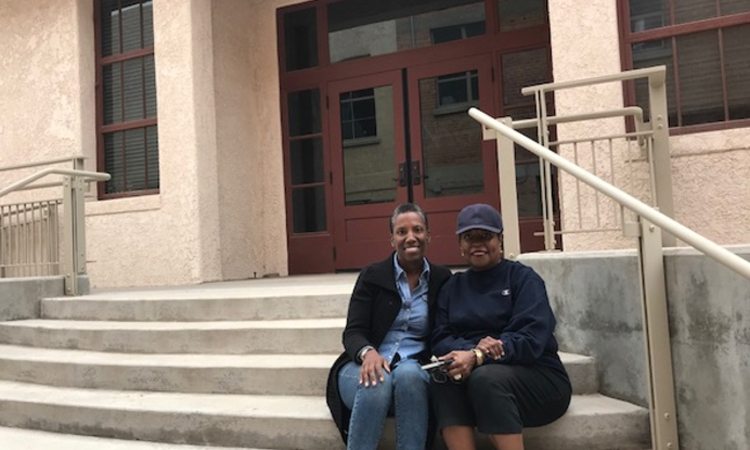|
Debi Chess Mabie has been selected by the University of Arizona College of Social and Behavioral Sciences and the Dunbar Coalition to lead the Dunbar Pavilion: An African-American Arts and Culture Center, 325 W. Second St., into its next 100 years of cultural significance. Mabie left her position as executive director of the Arts Foundation for Tucson and Southern Arizona to become the college’s first Community Impact Fellow, which is affiliated with the Southwest Folklife Alliance and co-funded by the college and the Dunbar Coalition for a two-year commitment. The coalition is the governing body of the Dunbar Pavilion and includes representatives from Dunbar alumni, the Tucson Urban League, the Juneteenth Festival committee and the Dunbar/Spring Neighborhood Association. “The Dunbar is one of the last remaining physical representations of the African-American community here in Tucson,” Mabie said. “What we are doing will not only support and promote the accomplishments of African-Americans, but create opportunities to reverse the effects of segregation in this community.” Construction of the Dunbar School was completed in January 1918. The school — named after Paul Laurence Dunbar, a renowned African-American poet — educated Tucson’s African-American students in the first through ninth grades until 1951, when segregation was eliminated from the school systems of Arizona. The Dunbar School then became the non-segregated John Spring Junior High School until 1978, when the school was closed permanently. Chyrl Hill Lander, a member of the Dunbar Coalition, said that the coalition purchased the building from the Tucson Unified School District in 1995 for $25, with the goal of converting it into an African-American museum and cultural center. Members of the coalition worked with former U.S. Rep. Jim Kolbe and current U.S. Rep. Rául Grijalva to secure federal funds to renovate the space, including the auditorium and three-quarters of the classrooms. According to Lander, the coalition has continued talks with Griljalva to secure the funds needed to complete the renovations. Currently, the two main tenants of the Dunbar Pavilion are the Dunbar Barber Academy and the Barbea Williams Dance Academy Company. Tucson’s Black Film Club also screens movies at the pavilion every three months. These activities, in addition to rental of the auditorium and commercial kitchen, provide the main sources of revenue for the building. In collaboration with the coalition, Mabie will focus on developing partnerships and involving community, business and civic leaders in the evolution of the project. She will supervise the fundraising, programming and revenue development activities that are critical to the mission of the center. She said she wants to create a space where different organizations share the facility and resources, and she is looking for groups whose goals aligns with the five pillars of the pavilion’s mission: health and well-being; education; art and culture; economic development and entrepreneurship; and civic engagement. “Debi is the ideal person to make this grand experiment work,” said Monica J. Casper, UA associate dean for faculty affairs and inclusion for the College of Social and Behavioral Sciences. “She has strong roots in the community, is a skilled administrator, is deeply committed to African-American advancement and understands the value of leveraging the UA’s resources for good. She has already hit the ground running, and we anticipate great outcomes.” |




